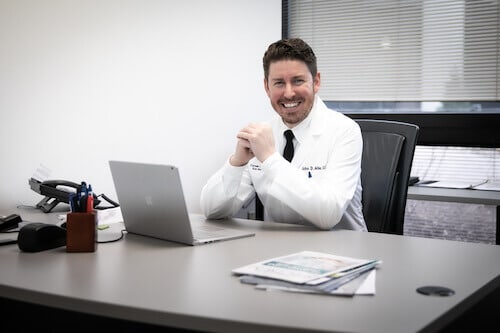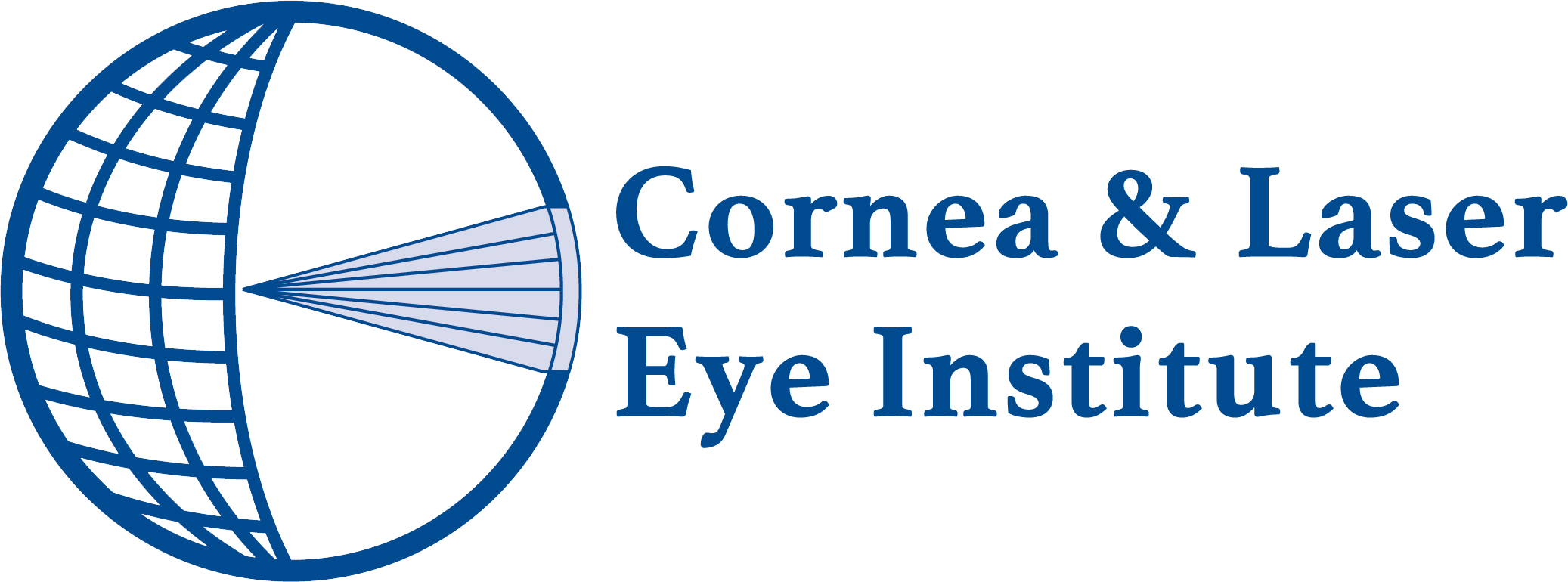
While all optometrists and ophthalmologists are licensed to prescribe contact lenses, not all possess the specialized skills and experience needed to create optimal lenses, particularly for those with keratoconus. Optometric and ophthalmologic programs typically provide limited education on specialized medical contact lenses, focusing primarily on basic principles and disposable soft lenses. The expectation is that practitioners will acquire further skills through clinical practice or during optional specialty fellowships, resulting in a wide range of contact lens prescribing expertise among eye care professionals. This lack of standardized training can be frustrating for keratoconus patients, who may need to visit multiple doctors and endure numerous attempts before finding someone with the expertise to create a well-fitting and effective lens.
What should you look for to find a true keratoconus contact lens expert?
Fellowship or Residency Training
Fellowship or residency training in Cornea and Contact Lens is an excellent way to distinguish an expert doctor from the average practitioner. These programs offer concentrated training in the specialty, although each program may have a specific subspecialty focus, whether on particular conditions or specific types of lenses.
Fellowship Designations
The most qualified doctors have earned specialized certifications from professional organizations that attest to their expertise in cornea and contact lenses. These certifications require rigorous demonstration of skills to a board of experts and are considered prestigious achievements. Generally, the more designations a doctor has achieved, the greater their expertise, which can be subspecialized. Look for these designations:
FAAO = Fellow of the American Academy of Optometry. With FAAO, there are no specific designations for which specialty the doctor achieved the fellowship, but the doctor will report whether it was in the cornea, contact lens and refractive technologies section.
FCLSA = Fellow of the Contact Lens Society of America, demonstrating expertise in contact lenses.
FSLS = Fellow of Scleral Lens Society, indicating specialized skill in scleral lenses.
FBCLA = Fellow of the British Contact Lens Association, demonstrating expertise in contact lenses.
FIAOMC = Fellow of the International Academy of Orthokeratology and Myopia Control, indicating expertise in orthokeratology and myopia control techniques.
Peer-Reviewed Publications
Experts in a particular field often contribute to medical literature by writing manuscripts about their research, informing other clinicians about new techniques or findings. This sharing of knowledge improves patient care worldwide.
Educator Roles
Most experts in specialized fields are frequently invited to present their cases and research or teach wet labs to educate other doctors. Some may even be asked to chair or direct educational symposiums, highlighting their recognized expertise.
Academic Appointments
Teaching residents, fellows, interns, and students is another way experts contribute to the field. Being a professor at an academic institution signifies endorsement by other experts and recognition of their academic prowess.
Clinical Trial Participation
Experts are often sought after to participate in clinical trials, contributing their specialized knowledge and skills to advance medical research.
Development and Patents
Many experts develop new techniques, instruments, or devices, demonstrating their innovative thinking and commitment to improving patient care.
Honors and Recognitions
Experts frequently receive honors and recognition from prestigious sources, acknowledging their contributions and achievements in their field.
Memberships
While most memberships simply involve paying dues and accessing resources, certain prestigious societies invite only decorated specialists to join, recognizing their significant contributions to medical knowledge.
Leadership
Experts are often recognized leaders in their specialty, holding leadership positions in societies, symposiums, or research teams. Their expertise and influence help shape the direction of their field.
The Doctors at CLEI
Our team of doctors have all the above qualifications, showing their true expertise and dedication to the field. Specific to keratoconus contact lenses, Dr. Gelles is internationally recognized as a keratoconus and keratoconus contact lens expert.
Dr. John D. Gelles, OD, FAAO, FIAOMC, FCLSA, FSLS, FBCLA – Director of the specialty contact lens division
- Education: Dr. Gelles graduated from the University of Oregon and received his Doctor of Optometry (O.D.) from the Pennsylvania College of Optometry.
- Fellowship Training: Dr. Gelles completed a Cornea Fellowship under Dr. Peter Hersh and a PROSE Clinical Fellowship.
- Fellowship Designations: He has also obtained the following fellowships: FAAO, FIAOMC, FCLSA, FSLS, and FBCLA.
- Peer-Reviewed Publications: He has authored or co-authored multiple manuscripts in prestigious journals, including Eye and Contact Lens, Cornea, Journal of Cataract and Refractive Surgery, and Journal of Refractive Surgery.
- Educator Roles: Dr. Gelles lectures frequently and has presented over a thousand lectures throughout his career at various conferences, including the Global Specialty Lens Symposium, International Keratoconus Academy, and International Congress of Scleral Contacts. He serves on multiple symposium planning committees and has chaired several meetings, including the International Congress of Scleral Contact, Cornea & Contact Lens Advancing Skills Symposium, Refractive Surgery and Keratoconus Symposium, New Technologies in Eye Care, Current Relevant and Useful Eye Care Symposium, and the Collaborative Care Symposium.
- Academic Appointments: Dr. Gelles is an adjunct clinical professor in Cornea and Contact Lens for the New England College of Optometry, Illinois College of Optometry, and State University of New York College of Optometry. Additionally, he is an Assistant Clinical Professor at Rutgers New Jersey Medical School.
- Clinical Trial Participation: He has been an investigator in multiple clinical trials related to keratoconus, contact lenses, crosslinking, corneal surgery, and corneal disease. Most notably, he led the clinical trial on wavefront-guided scleral lenses.
- Development and Patents: Dr. Gelles has developed contact lenses, cornea and dry eye instruments, and diagnostic devices. He holds patents in contact lens and corneal surgery methods and devices.
- Honors and Recognitions: He has been honored by Newsweek, the Contact Lens Society of America, and the National Keratoconus Foundation.
- Invited Memberships: He was invited to be a member of the International Society of Contact Lens Specialists.
- Leadership: He has served as the education chair for the International Keratoconus Academy, the Intrepid Eye Society, and the Refractive Surgery Alliance. He has also been an advisory board member of the Gas Permeable Lens Institute and the Contact Lens Society of America and served on the Innovations Council of the American Academy of Optometry.
Conclusion
When your condition is affecting your quality of life, you need a true expert. Today, finding one can be challenging, as anyone with a social media presence can claim expertise. Don’t be fooled by flashy videos, a large following, testimonials, or reviews. These do not equate to expertise. Knowing what to look for can help you differentiate a general practitioner with a specialty interest from a true expert. At CLEI, you can trust that your doctor is a world-renowned expert in their field.




